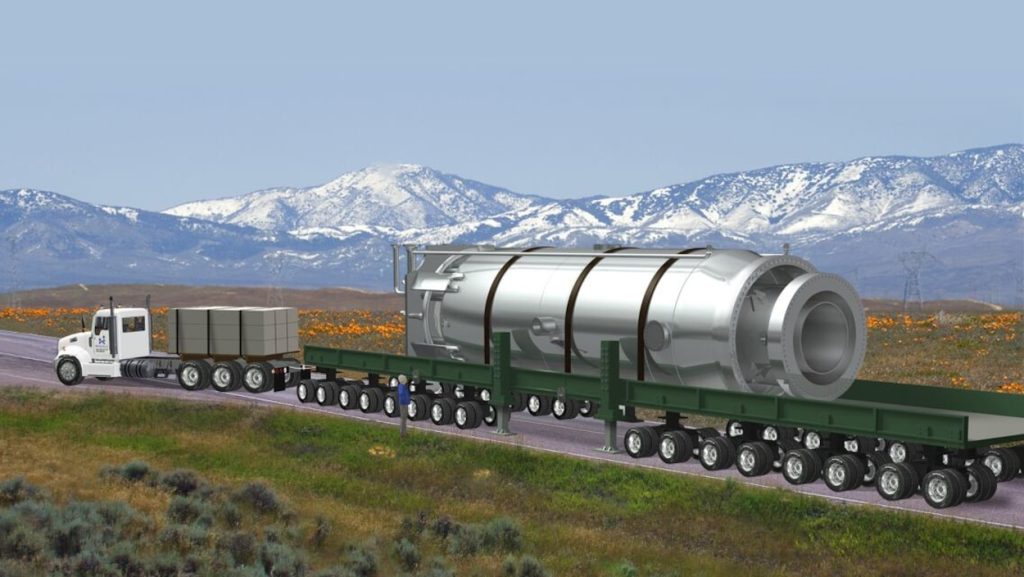
The federal government has approved up to $74 million in funding for the development of small modular reactors (SMRs) in Saskatchewan.
Saskatchewan, like Ontario, New Brunswick and Alberta, is committed to developing this type of technology to decarbonize its economy and meet growing electricity demand.
The PRM Small nuclear reactors can produce up to 300 megawatts and power about 300,000 homes. Dan Morgan, the minister responsible for Saskatchewan’s Crown Corporations, has already indicated that a small reactor could cost five billion dollars to produce.
Providing clean, reliable and affordable electricity varies from region to region
Jonathan Wilkinson, federal minister of energy and natural resources, said in a press release.
In Saskatchewan, there is federal funding Explore the potential of small modular reactors to provide abundant emission-free energy, boost economic growth and create good, sustainable jobs across the province
Minister Wilkinson explained.
Funding provided by Ottawa supports engineering work, technical studies, environmental assessments, regulatory studies and consultation with communities and Aboriginal peoples. The project is led by SaskPower, which chose to rely on GE-Hitachi’s BWRX-300. The Crown Corporation hopes to roll out the technology across the province over the next decade.
Today’s announcement means we are investing in the future of nuclear technology […] Harnessing Saskatchewan’s world-class uranium production will enable the province to thrive in a rapidly decarbonizing global economy.
added Mr. Wilkinson.
Northern Saskatchewan has several yellow uranium mines, giving the province a supply advantage.
Carbon neutrality
Saskatchewan will be a leader in developing a clean, affordable and reliable electricity system
Federal Minister of Environment and Climate Change Steven Guilbelt said.
Canada has set a goal of achieving carbon neutrality by 2050. With this in mind, the federal government wants to focus on new zero-emission electricity infrastructure projects, including nuclear technologies such as small modular reactors.
According to Natural Resources Canada, this technology is very promising Help decarbonize regional power grids and high-emission industries
Additionally Help remote communities reduce their reliance on diesel
.
Ottawa has committed more than $40 billion in new federal measures to help provinces decarbonize their economies.
The federal government is also taking aim Transition to a non-transmitting, affordable and reliable electricity grid
Nationwide by 2035.





More Stories
Sportswear: Lolle acquires Louis Garneau Sports
REM is still innovative enough to foot the bill
A trip to the restaurant with no regrets for these customers